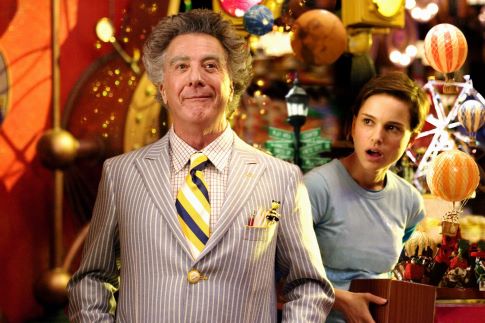No Strings Attached
Posted on May 10, 2011 at 8:18 am
This is another one of those romantic comedies where a bland couple has some trivial obstacles to overcome and you just wish they would get out of the way because their surrounding friends and family are much more interesting.
Mindy Kaling (“The Office”), Greta Gerwig (“Greenberg”), Chris “Ludacris” Bridges (“Back for the First Time”), Kevin Kline (“A Fish Called Wanda”), Lake Bell (“It’s Complicated”), and Jake M. Johnson (“Paper Heart”) and the characters they play are each far more deserving of a movie of their own than the dull couple played by Natalie Portman and Ashton Kutcher.
This seems to be a movie moment for stories about what Erica Jong used to call zipless , the fantasy of an experience that is physical perfection with no thinking or emotion involved at all. “Friends With Benefits” has an almost identical plot to this one and “Hall Pass,” and “Just Go With It” are among the films that focus on the premise of sex without any sort of romantic entanglements or consequences. This made for a pretty good “Seinfeld” episode but I’m not sure there is enough in that premise for even one movie, and this movie does not persuade me otherwise.
First we have to have a reason for both parties to avoid any relationship beyond the physical. It’s pretty weak on her part and pretty ugly on his. Kutcher plays a guy who has been hurt. His ex-girlfriend is sleeping with his father (Kevin Kline) a one-time television star with a taste for drugs and women, the emotional maturity of a two-year-old and the vocabulary of a Penthouse letter. Portman plays a doctor who is just too busy for relationship niceties. Ultimately, we find out there’s a little bit more to it, but it’s too dull to care about. In the meantime, our couple finds out that there’s no such thing as uncomplicated sex.
Um, duh.
Portman does what she can for her character despite her idiotic and inconsiderate behavior. Kutcher plays his usual lovable St. Bernard puppy self, the boyfriend so perfect he even makes a special mix CD for soothing menstrual cramps. But the resolution is so clear from the beginning and the contrast with the more engaging characters around them so clear that it feels like it keeps trying to lose us. Instead of making us care about the couple, it tries to win us over with crassly provocative behavior and language. This movie would be more accurately titled, “a salute to the overshare.” Unless you think it deserves saluting, skip it.

